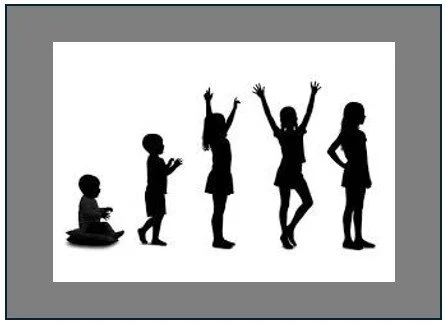What Do You Want To Be Spiritually?
Rev. Erik Swanson
October 26, 2025
You can watch the entire sermon here.
When I was in college, I remember coming home on weekends and finding articles that my dad had left out for me to read. They were all about this thing called artificial intelligence — the wave of the future, he said. He thought it might be a good career path for me, one that would promise stability and success. And he was right — his foresight was remarkable. AI has indeed become one of the great forces shaping our world. But even then, something inside me resisted. It wasn’t that I didn’t believe it was a good opportunity; it just didn’t feel like me. I couldn’t see myself in that world. It didn’t align with who I was or who I wanted to become. Gratefully, I found my way into ministry, and being a pastor feels deeply like home — like who I truly am.
The Pharisee And The Tax Collector: Who Do You Want To Be?
That question of who we are and who we want to be is also at the heart of today’s scripture. In Luke’s parable (Luke 18:9-14), Jesus tells the story of two men: a Pharisee and a tax collector. The Pharisee was the respected religious leader of his day, someone admired and honored. The tax collector, on the other hand, was despised — seen as corrupt and traitorous. But Jesus does something shocking. He flips their roles. The one society respects becomes the cautionary tale, and the one society scorns becomes the example to follow. It’s as if Jesus is asking each of us: Who do you want to be? Which path are you on? For me, this story reveals two important contrasts — performative versus introspective, and accusatory versus accountable.
Performative Versus Introspective
The Pharisee represents the performative life. He stands before God listing all his accomplishments, trying to prove his goodness and righteousness. It’s a spirituality based on being seen, on convincing others (and perhaps himself) that he’s worthy. I think we all fall into that trap at times — wanting to look good rather than be good. I can speak eloquent words, attend rallies, or make bold statements, but if I don’t live them out in my daily actions, it’s hollow. True spirituality isn’t about performance; it’s about introspection. The tax collector models this. He stands before God with humility, aware of his failings, open to mercy. Introspection is the inner work — the courage to face who we really are and to let God transform us from within.
Accusatory Versus Accountable
The second contrast is accusatory versus accountable. The Pharisee looks down on others, proclaiming how glad he is not to be like “those people.” It’s an attitude that still echoes in our world and our leadership today — loud proclamations of greatness, often masking insecurity and avoidance of deeper truth. The tax collector, by contrast, takes responsibility for himself. He doesn’t deflect or justify. He simply faces his reality and asks for mercy. Accountability begins there — owning our truth before God and allowing that honesty to become the soil for growth.
Humility
It’s interesting that, in Christian teaching and later English sermons, humility was sometimes compared to a powerful horse brought under control — strength governed by discipline and gentleness. That image likely gave rise to the popular saying that humility is “power under control.”
Jesus Calls Us to Maturity
Jesus isn’t telling us to celebrate wrongdoing or wallow in guilt. He’s calling us to maturity — to transformation through humility and self-awareness. The invitation is to be less performative and more introspective, less accusatory and more accountable. When we live this way, we not only grow closer to who God longs for us to be — we help make the world a more compassionate and authentic place. Amen.

